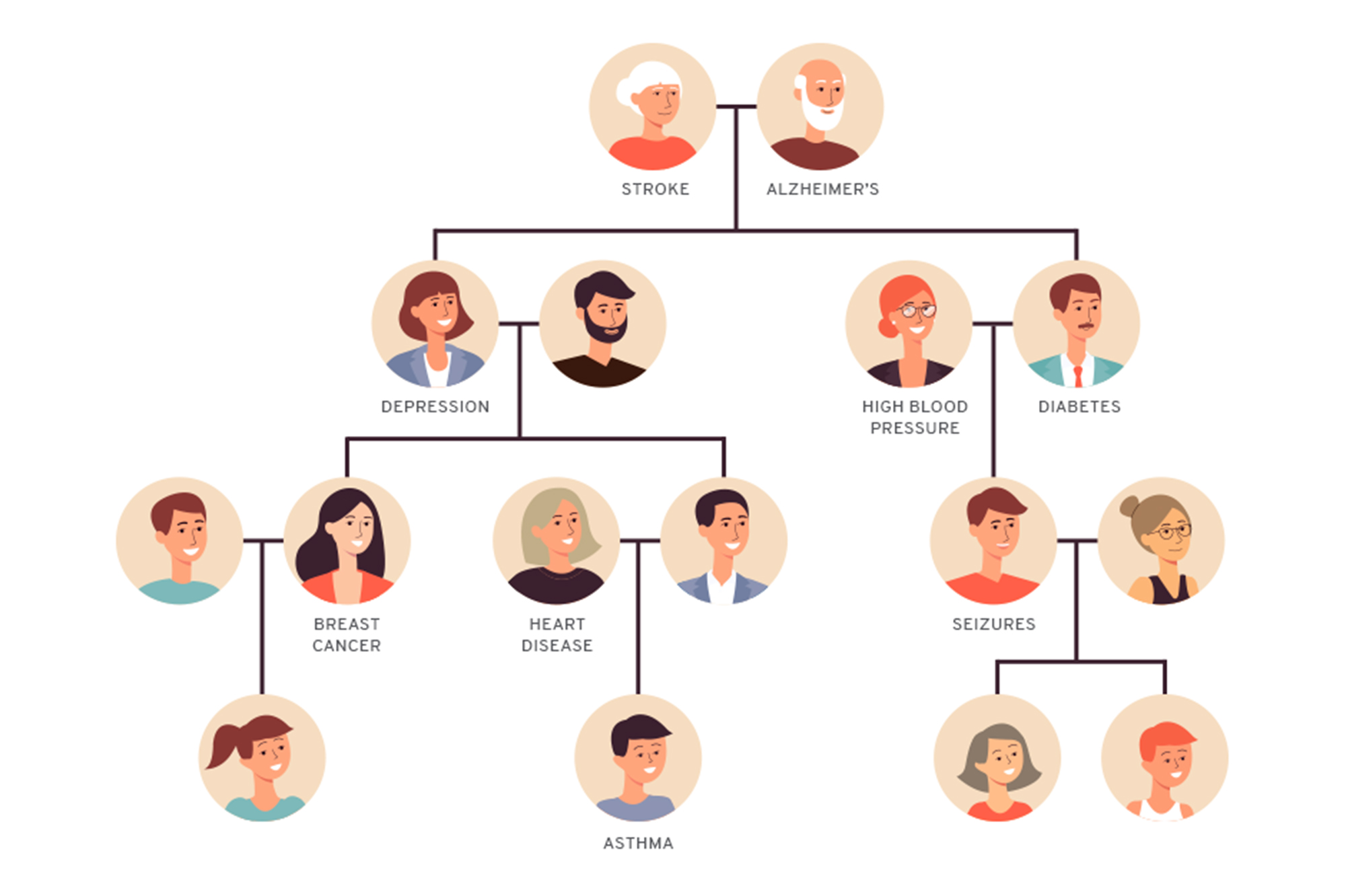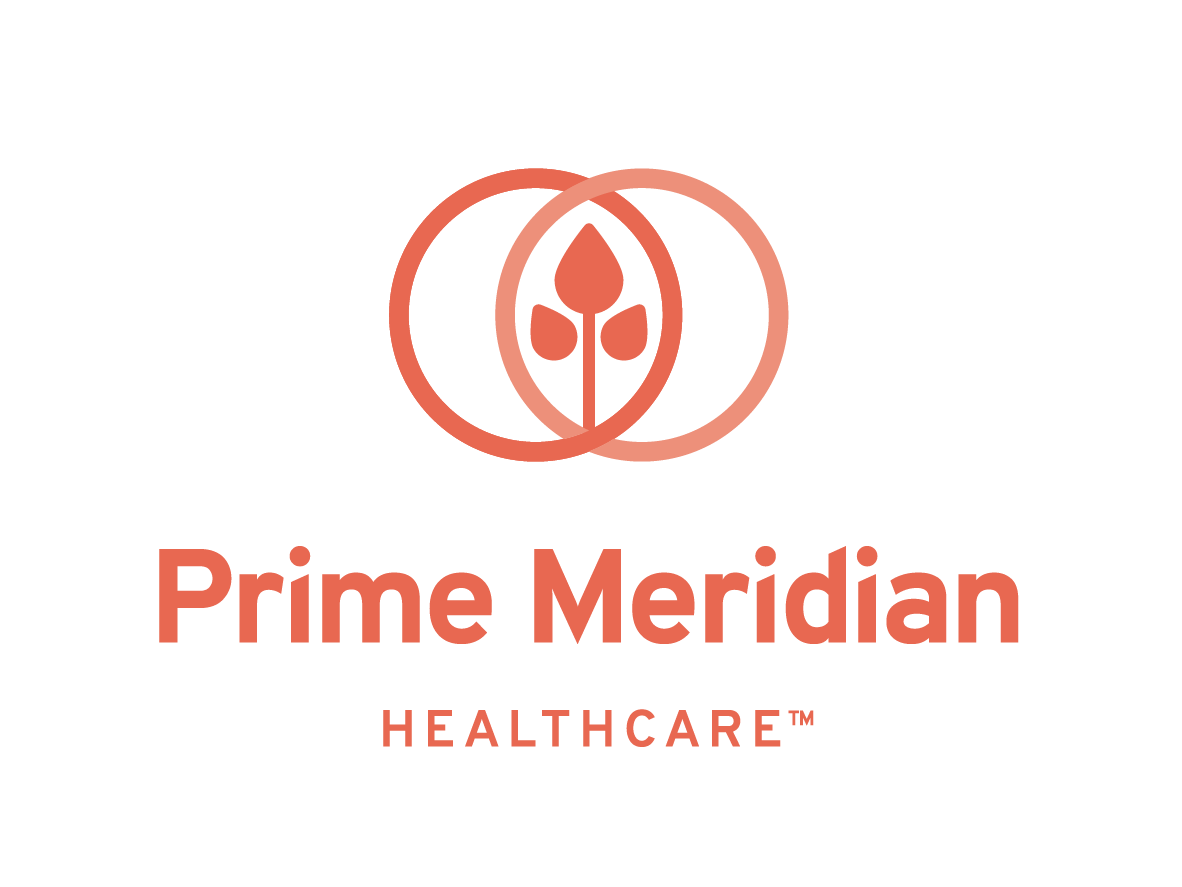
KNOWING YOUR FAMILY HEALTH HISTORY
Importance of Knowing Your Family Health History
Modern medicine has made such advanced leaps in the past century that our greatest health concerns are lifestyle-related; we can, to a degree, manage risk by practicing specific healthy lifestyle behaviors. But our health isn’t totally within our control. This is why it is so important to know your family’s health history. Families have a number of similarities – genetics, lifestyle factors, and environment – that influence the health of each of its members. If you want to be proactive about your health, start with asking your relatives about theirs.
What Information do I Need?
The general rule with family health history is, the more information the better, but there are some people and information that is particularly important. Your genetic code is a combination of your parents, that’s the best place to start. After your parents, the next level of importance is grandparents and siblings, then extended family members. The most important information is how they died, if they were ever diagnosed with a serious health condition, and how old they were when these health issues arose.
While there are certainly lifestyle factors, certain genetic traits (that could be passed on by your parents) and shared environmental factors increase risk for almost every chronic disease!
Chronic Diseases with Increased Risk
Cancer
Many forms of cancer have a genetic component. For certain inherited cancers such as breast and colorectal, approximately 20% of patients will have a family history that suggests an increased risk (1).
Depression
While we still don’t quite understand why, studies have shown that the heritability of major depression may be as high as 38% (5).
Alzheimer's Disease
Research suggests that those with a close relative that has been diagnosed with Alzheimer’s Disease are 30% more likely themselves to be diagnosed with a cognitive disorder in the future (3).
Heart Disease
The world’s greatest killer has a strong genetic component. Research has shown that offspring of parents who develop premature heart disease have a 60%-75% increased risk (2).
Diabetes
An extensive population-based study showed that, independent of other factors, a family of history of type 2 diabetes increases your own risk up to 5.5 times (4).
Knowing if you have a family history of any of these health conditions can be a powerful tool when meeting with your Prime Meridian Healthcare provider. This information gives them an idea of what to specifically watch for when helping support your wellness.
How Do You Gather This Information?
There is no easy way to gather this information, you just have to ask. The CDC recommends that you begin by creating a chart of family members on both sides and then asking your own parents about the health of these relatives. You can then contact these relatives directly for further information (6). The CDC even offers a free web-based tool called “My Family Health Portrait” that can help you organize and update this information (7). Don’t forget to share this information with your relatives and your trusted Prime Meridian Healthcare providers.
Acting on Family History Information
Without action, gathering all this family health history is irrelevant. After sharing this information with your healthcare provider, discuss with them what it means and how you can use it decrease your own chronic disease risk. Those with the most ominous family health history actually have the most to gain because they can use the information to make specific lifestyle changes and request medical screenings that may be relevant to their genetic predispositions. It’s all about communication.
One of the most important components of your health is something you don’t have any control over: your family health history. But you do have control of how much information you have. For your health, and that of your family, communicate! Ask those tough questions, and spend some time creating a “My Family Health Portrait” so you have a clear picture of what you need to do to minimize your chronic disease risk. Discuss your family health history with your Prime Meridian Healthcare provider so they can help you design your lifestyle and environment to support your health.
References
1
Family History and Cancer
Lim J. and Hewison J.
4
Family History and Diabetes
Valdez R., et al.
7
My Family Health Portrait
Centers for Disease Control.
2
Family History and Cardiovascular Disease
Kolber M. and Scrimshaw C.
5
Family History and Depression
Zalar B., et al.
3
Family History and Alzheimer’s Disease
Donix M., et al.
6
Act on Your Family History
Centers for Disease Control.


